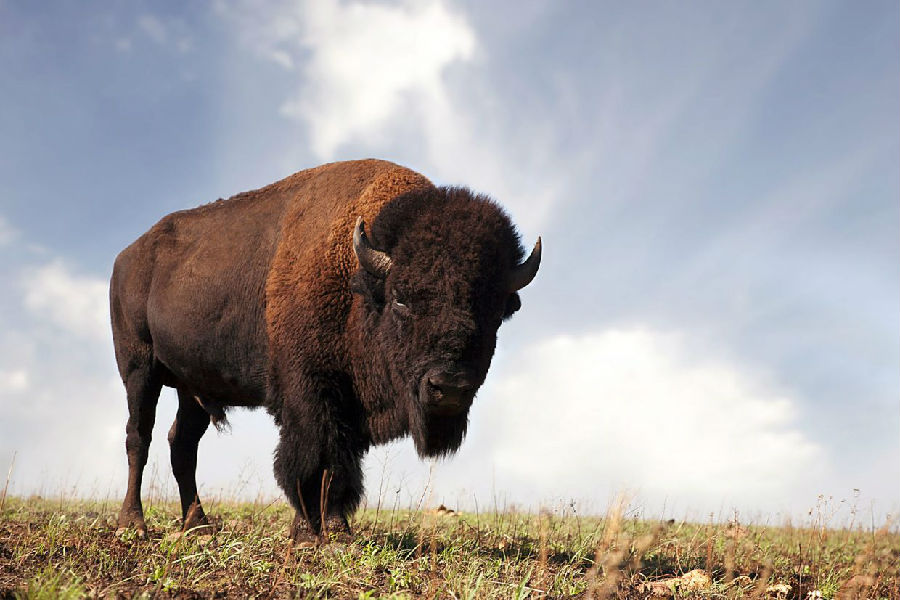While his thick coat protects him from the cold, he is also provided with a broad, strong, and tough nose,
但是野牛皮很厚,足以避寒。此外,它还有一个宽大、强劲且坚硬的鼻子,
with which he can shovel away the snow, and lay bare the grass on which he feeds.
它可以用鼻子铲雪,躺在草地上吃草。
Many tribes of Indians were indebted to the bison for their means of living.
许多印第安人部落都要对野牛心存感激,因为这是他们赖以生存的东西。
It afforded them not only food, but materials for their tents, clothing, and domestic utensils.
它们不仅从野牛身上获取食物,还能得到搭帐篷、做衣服和部落内所用餐具的材料。
Indeed, so entirely were the tribes of the far West dependent on the bison, that if it had been exterminated, the Indians would have perished.
确实,西部偏远部落完全依赖野牛生存,如果野牛灭绝了,那么印第安人可能也会消亡。

Its flesh was their chief food. It was prepared in a variety of ways.
野牛肉是主要的食物,有很多种做法。
When cut up into long strips, and dried in the sun, it kept for a long time.
将其切成长条,放在阳光下晾晒,就能保存很长时间。
It was also pounded with the fat of the animal and converted into pemmican—a very nourishing food.
还能与动物的脂肪一起捣碎,做成干肉饼,这是一种营养丰富的食物。
The prairie Indians made use of the hide for many purposes.
野牛皮对草原印第安人来说有很多用处。
They scraped off the hair and tanned it, when it served them for coverings for their tents, and for the bales into which the buffalo meat was packed.
他们剥下牛皮,晒干后能用来盖帐篷,也可以在里面存放扎成一捆捆的牛肉。












